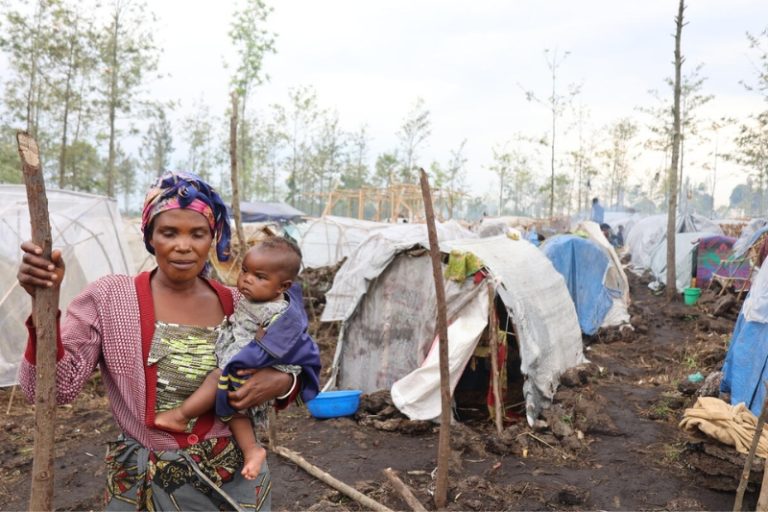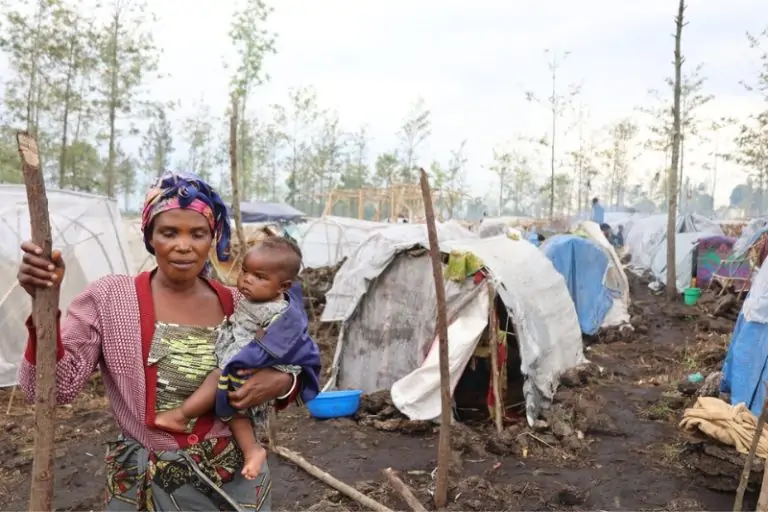

urgent appeal un high commissioner highlights crisis in dr congo
The U.N. High Commissioner for Human Rights, Volker Turk, emphasised the urgent need for attention to the conflict in the Democratic Republic of the Congo (DRC) during his visit to a displaced persons camp in Goma. The conflict between the Congolese army and M23 rebels has resulted in widespread displacement, with thousands forced to flee their homes, creating one of the world’s worst displacement crises, according to the UN Office for the Coordination of Humanitarian Affairs.
Displaced individuals like Faida Bauma and Aminatha Kasole expressed their anguish over the dire living conditions and ongoing violence in the camp. Bauma lamented the suffering caused by the conflict, highlighting the fear of violence and the lack of basic necessities. Kasole pleaded for an end to the war so that people could return home and live in peace.
Turk’s visit aimed to draw international attention to the crisis in eastern DR Congo, where the security situation continues to deteriorate due to clashes between the Congolese army and M23 rebels. He stressed the need for the international community to take the situation seriously and address the tragedy unfolding in the region.
Since the start of 2024, the DRC has seen over 738,000 new displacements, bringing the total to approximately 7.2 million. Women make up 51% of the displaced population, highlighting the disproportionate impact on women and girls.
Since the end of 2021, tensions have been present in the conflict in North Kivu province between the M23 rebels, suspected of receiving support from Rwanda, and the Congolese army. The DRC accuses Rwanda of seeking control over eastern Congolese minerals, while the M23 claims to defend the population and demands negotiations, which Kinshasa refuses.
Efforts to address the crisis include Turk’s engagement with displaced individuals during his visit to the camp and his appeal to the international community for support. The ongoing clashes underscore the need for immediate action to protect civilians and provide humanitarian assistance to those affected by the conflict.
The conflict in the DRC presents complex challenges, including the protection of civilians, the provision of humanitarian aid, and the pursuit of lasting peace. The displacement crisis exacerbates vulnerabilities, particularly for women and children, who face heightened risks of violence, exploitation, and displacement.
We call on international organisations and governments to increase their support for humanitarian efforts in the DRC and to advocate for a peaceful resolution of the conflict. We need urgent funding and resources to address the immediate needs of displaced populations and to support long-term recovery and stabilisation efforts in the region.
Despite the challenges, there remains hope for peace and stability in the DRC. Continued diplomatic efforts, dialogue, and cooperation among all stakeholders are essential to addressing the root causes of the conflict and building sustainable peace in the region.
The situation in the Democratic Republic of the Congo demands immediate attention and action from the international community. By prioritising civilian protection, addressing humanitarian needs, and promoting dialogue and reconciliation, there is hope for a brighter and more stable future for the people of the DRC.
The cricket authority in Zimbabwe will organize matches between top international teams in a major cricket event expected to succeed…
In 2025 the South African Social Security Agency (SASSA) announced its designated dates for social grant payments that benefits millions…
Africa is taking big steps by entering the global green technology manufacturing market to stop being just a supplier of…
Two mobile telecom leaders, MTN Group and Airtel Africa, joined forces to create a new digital infrastructure system throughout African…
South African President Cyril Ramaphosa defended his nation against claims of white discrimination made by tech magnate Elon Musk. After…
Hilton launched Signia by Hilton for its first appearance in Egypt and Africa through its hotel expansions. These hotels at…
This website uses cookies.